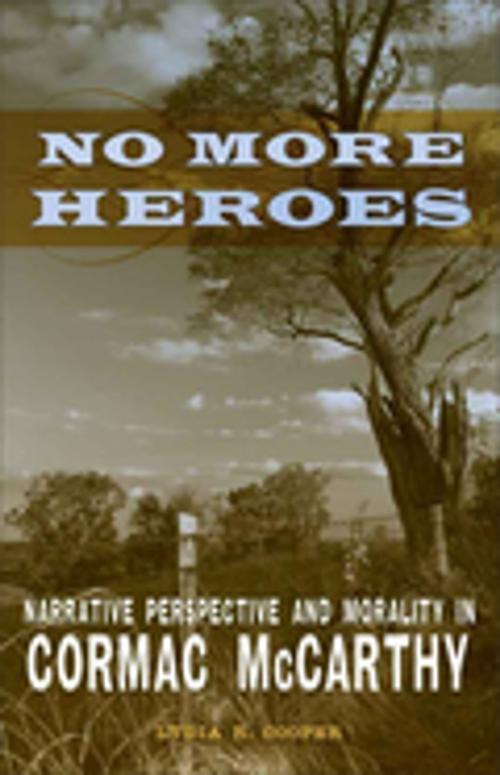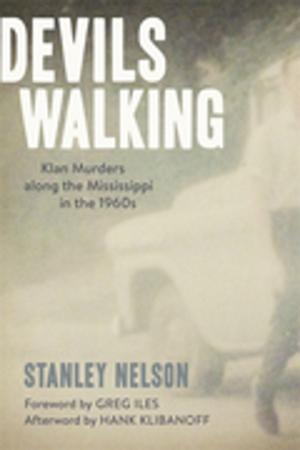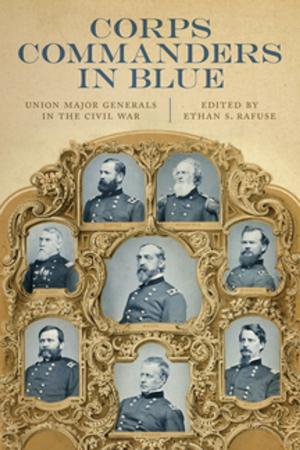No More Heroes
Narrative Perspective and Morality in Cormac McCarthy
Fiction & Literature, Literary Theory & Criticism, American| Author: | Lydia R. Cooper | ISBN: | 9780807139790 |
| Publisher: | LSU Press | Publication: | May 3, 2011 |
| Imprint: | LSU Press | Language: | English |
| Author: | Lydia R. Cooper |
| ISBN: | 9780807139790 |
| Publisher: | LSU Press |
| Publication: | May 3, 2011 |
| Imprint: | LSU Press |
| Language: | English |
Critics often trace the prevailing mood of despair and purported nihilism in the works of Cormac McCarthy to the striking absence of interior thought in his seemingly amoral characters. In No More Heroes, however, Lydia Cooper reveals that though McCarthy limits inner revelations, he never eliminates them entirely. In certain crucial cases, he endows his characters with ethical decisions and attitudes, revealing a strain of heroism exists in his otherwise violent and apocalyptic world.
Cooper evaluates all of McCarthy's work to date, carefully exploring the range of his narrative techniques. The writer's overwhelmingly distant, omniscient third-person narrative rarely shifts to a more limited voice. When it does deviate, however, revelations of his characters' consciousness unmistakably exhibit moral awareness and ethical behavior. The quiet, internal struggles of moral men such as John Grady Cole in the Border Trilogy and the father in The Road demonstrate an imperfect but very human heroism.
Even when the writing moves into the minds of immoral characters, McCarthy draws attention to the characters' humanity, forcing the perceptive reader to identify with even the most despicable representatives of the human race. Cooper shows that this rare yet powerful recognition of commonality and the internal yearnings for community and a commitment to justice or compassion undeniably exist in McCarthy's work.
No More Heroes directly addresses the essential question about McCarthy's brutal and morally ambiguous universe and reveals poignant new answers.
Critics often trace the prevailing mood of despair and purported nihilism in the works of Cormac McCarthy to the striking absence of interior thought in his seemingly amoral characters. In No More Heroes, however, Lydia Cooper reveals that though McCarthy limits inner revelations, he never eliminates them entirely. In certain crucial cases, he endows his characters with ethical decisions and attitudes, revealing a strain of heroism exists in his otherwise violent and apocalyptic world.
Cooper evaluates all of McCarthy's work to date, carefully exploring the range of his narrative techniques. The writer's overwhelmingly distant, omniscient third-person narrative rarely shifts to a more limited voice. When it does deviate, however, revelations of his characters' consciousness unmistakably exhibit moral awareness and ethical behavior. The quiet, internal struggles of moral men such as John Grady Cole in the Border Trilogy and the father in The Road demonstrate an imperfect but very human heroism.
Even when the writing moves into the minds of immoral characters, McCarthy draws attention to the characters' humanity, forcing the perceptive reader to identify with even the most despicable representatives of the human race. Cooper shows that this rare yet powerful recognition of commonality and the internal yearnings for community and a commitment to justice or compassion undeniably exist in McCarthy's work.
No More Heroes directly addresses the essential question about McCarthy's brutal and morally ambiguous universe and reveals poignant new answers.















